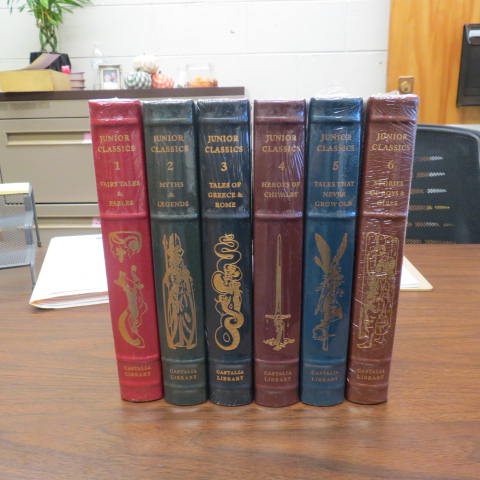The September-October Castalia Library book is SKIN IN THE GAME by Nassim Nicholas Taleb. It is an excellent work, second only to ANTIFRAGILE in my opinion. Subscribers will also be able to purchase the fourth book in the leather INCERTO collection, FOOLED BY RANDOMNESS, at the subscription price. All four books are being designed to work together as a set, in the mode of the three Aristotle books.

A few notes concerning Castalia Library.
- A THRONE OF BONES I and II are currently scheduled to ship on 16 December from the bindery. We are attempting to get them moved up on the schedule; this is yet another reminder, as if any were needed, that we would really like to get these things under our control.
- If you no longer subscribe to Castalia Library, you are not eligible for the discounted subscribers price. We would like to avoid issuing new discount codes for each book, but if the discounts continue to be used by ex-subscribers, we will have to do so.
- The leather JUNIOR CLASSICS VOLS. 1-6 are complete. We’re going to confirm addresses next week, then get them out. We have 2-3 goatskin as well as an unknown number of cowhide sets remaining, and they will be made available to those who wish to buy them soon.
- A dry washcloth will suffice to remove the extraneous gold foil speckling on ETHICS and will not harm the leather. We’re looking into what happened there.
- There are 61 copies of ETHICS remaining.
EXCERPT: This book, while standalone, is a continuation of the Incerto collection, which is a combination of a) practical discussions, b) philosophical tales, and c) scientific and analytical commentary on the problems of randomness, and how to live, eat, sleep, argue, fight, befriend, work, have fun, and make decisions under uncertainty. While accessible to a broad group of readers, don’t be fooled: the Incerto is an essay, not a popularization of works done elsewhere in boring form (leaving aside the Incerto’s technical companion).
Skin in the Game is about four topics in one: a) uncertainty and the reliability of knowledge (both practical and scientific, assuming there is a difference), or in less polite words bull**t detection, b) symmetry in human aff airs, that is, fairness, justice, responsibility, and reciprocity, c) information sharing in transactions, and d) rationality in complex systems and in the real world. That these four cannot be disentangled is something that is obvious when one has . . . skin in the game. It is not just that skin in the game is necessary for fairness, commercial efficiency, and risk management: skin in the game is necessary to understand the world.
First, it is bull***t identification and filtering, that is, the difference between theory and practice, cosmetic and true expertise, and academia (in the bad sense of the word) and the real world. To emit a Yogiber-rism, in academia there is no difference between academia and the real world; in the real world, there is.
Second, it is about the distortions of symmetry and reciprocity in life: If you have the rewards, you must also get some of the risks, not let others pay the price of your mistakes. If you inflict risk on others, and they are harmed, you need to pay some price for it. Just as you should treat others in the way you’d like to be treated, you would like to share the responsibility for events without unfairness and inequity.
If you give an opinion, and someone follows it, you are morally obligated to be, yourself, exposed to its consequences. In case you are giving economic views:
Don’t tell me what you “think,” just tell me what’s in your portfolio.
Third, the book is about how much information one should practically share with others, what a used car salesman should— or shouldn’t— tell you about the vehicle on which you are about to spend a large segment of your savings.
Fourth, it is about rationality and the test of time. Rationality in the real world isn’t about what makes sense to your New Yorker journalist or some psychologist using naive first-order models, but something vastly deeper and statistical, linked to your own survival.
